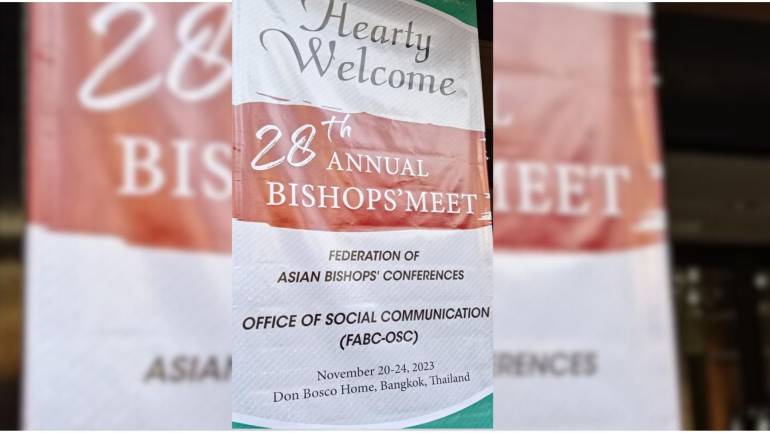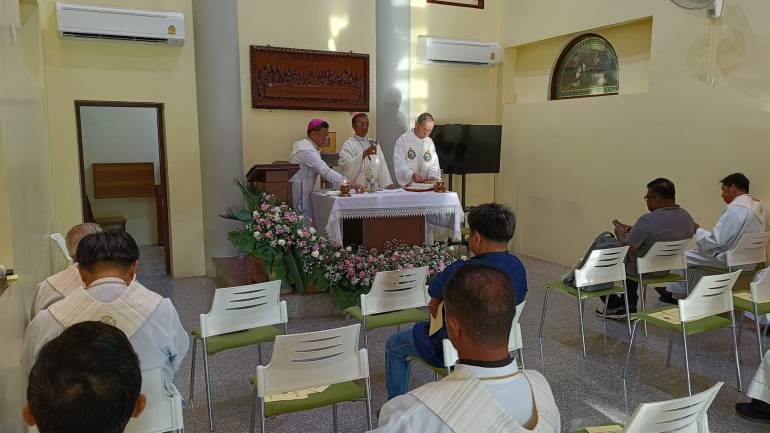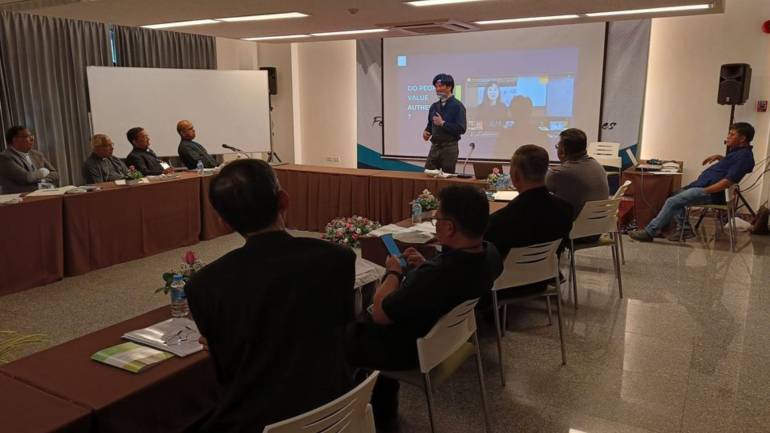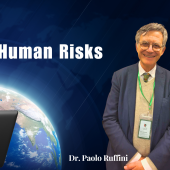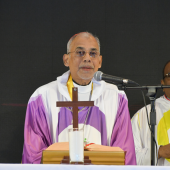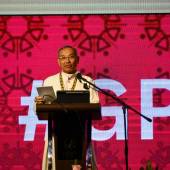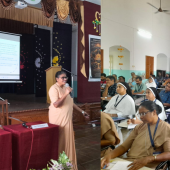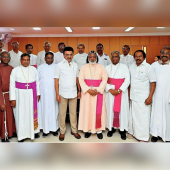Communication’s theological roots retold at Bishops’ meeting
“Communication is at the very heart of our faith because it is linked to the Holy Trinity.”
Resource persons of the ongoing 28th annual Asian bishops’ meeting stressed this on November 22.
Peter Monthienvhichienchai, executive director of Licas.news, said that instead of posing a technological challenge, AI or artificial intelligence, “unearths a crisis in people’s values.”
Speaking on the “Rapidly Changing World of AI,” he said the modalities that make AI are gaining “trust to act on data supplied by humans, to think, and to decide for them.” But, “to what extent do people value authenticity and human interaction?"
“In the age of AI, people matter, particularly the often victimized poor and vulnerable,” said Monthienvichienchai, who heads Signis, the World Catholic Association for Communication.
But instead of “controlling AI,” the Church must instigate dialogue with AI developers and businesses to share her values and “influence the algorithm,” Monthienvichienchai said.
“Church communicators must commune with one another and the people they communicate with. The scholar added that communion combats the individualism that AI and related technologies breed.
On the topic “Evangelizing Mission and Communication,” Cardinal Sebastian Francis cited the “great temptation” to conform to worldviews, even to a singular way of living faith.
“The symphonic unity at Pentecost, which started in the Upper Room, (on the other hand) reveals the Church’s universality,” and “universality has nothing to do with uniformity,” the prelate from Penang said.
“Our universality must reflect the universality of the Trinitarian God,” the Federation of the Asian Bishops’ Conferences (FABC)-Office of Social Communication (OSC) chairman added.
“This impels us to plant the faith everywhere and harness “the rich reality of our languages and cultures” in Asia.
“Inculturation of faith and evangelization of cultures are two inseparable aspects of our mission."
And “because of the grace of Pentecost, there should be no room for dominance by any one culture, nation, religion, creed, language, or technology.” The “universality of diversity must be protected because this is our life.”
And because “Asia is the continent of the young, we must evangelize with a young, creative, bridge-building, and energetic spirit,” Cardinal Francis concluded.
Speaking on “Pastoral Formation in Social Communication,” Natasa Govekar, from the Vatican Dicastery for Communication, said, “We do not need knowledge and technology necessarily but rather an understanding of what it means to be human.”
“Christianity’s DNA contains the promise of Christ’s abiding presence, which is life transformative.”
“A pastoral approach to communication formation should then aid in learning creativity as bearers of God’s image and likeness,” said Govekar, who heads the theological-pastoral department of the Vatican's Secretariat for Communication.
“Our focus is supposed to be the human heart even before professional formation because communication is at the very heart of our faith. Communication is intimately linked to the Holy Trinity,” she said.
Instead of focusing on structures and positions, Church communicators must foster “communion with God and with one another.”
“Communion is a gift. We must rediscover communion and choose it repeatedly, even if it means ‘dying’ to our own ways,” Govekar concluded.
The 28th annual Bishops’ Meet is a closed meeting of FABC-member bishops and their secretaries in the social communication ministry. The meetings run from November 22 to 24 at Don Bosco Home in Bangkok, Thailand.
The Federation of Asian Bishops' Conferences (FABC-OSC) Office of Social Communication is in charge of organizing the gathering.
Radio Veritas Asia (RVA), a media platform of the Catholic Church, aims to share Christ. RVA started in 1969 as a continental Catholic radio station to serve Asian countries in their respective local language, thus earning the tag “the Voice of Asian Christianity.” Responding to the emerging context, RVA embraced media platforms to connect with the global Asian audience via its 21 language websites and various social media platforms.





